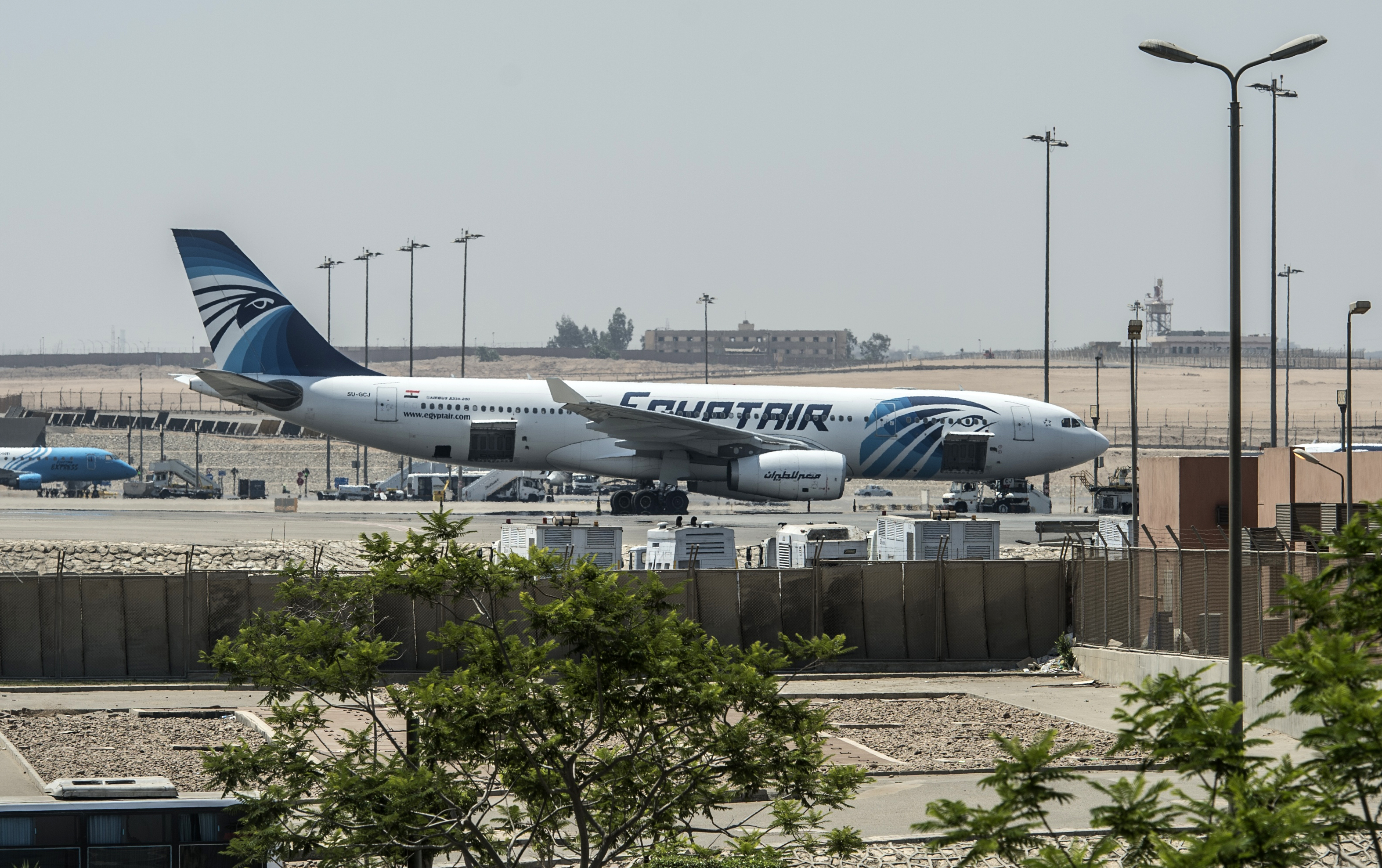
Egypt’s aviation minister said he could not rule out that an attack or a technical failure brought down the plane.
/ AFP PHOTO /
CAIRO, Egypt (AFP) — Pieces of the cabin from the missing EgyptAir plane which crashed into the Mediterranean last month have been found, Egyptian investigators said Wednesday.
A French vessel taking part in the search discovered pieces of fuselage at “several sites”, the Egyptian board of inquiry said in a statement.
The Airbus A320 which had been en route from Paris to Cairo disappeared on May 19, with the loss of all 66 people on board.
The “John Lethbridge” research boat, which made the find, arrived in Egypt last week to begin searching the Mediterranean for the wreckage with an underwater robot.
The discovery comes after investigators warned on Monday that signals from the plane’s black boxes would stop operating by the end of the month.
The area of sea where it crashed is believed to be about 3,000 meters (10,000 feet) deep and its flight data recorder and cockpit voice recorder should have had enough battery power to emit signals for four to five weeks.
Investigators have said it is too soon to determine what caused the disaster although a terror attack has not been ruled out.
France’s aviation safety agency has said the aircraft transmitted automated messages indicating smoke in the cabin and a fault in the flight control unit minutes before disappearing from radar screens.
Investigators were able to narrow down the search site thanks to an emergency signal sent via satellite by the plane’s locator transmitter when it hit the Mediterranean.
Terror threat
The signals were picked up by French survey ship Laplace which uses acoustic detection systems to listen for the “pings” emitted by the flight recorders, France’s aviation safety agency BEA said.
The passengers were 30 Egyptians, 15 French citizens, two Iraqis, two Canadians, and citizens from Algeria, Belgium, Britain, Chad, Portugal, Saudi Arabia and Sudan. They included a boy and two babies.
Seven crew and three security personnel were also on board.
The crash comes after the bombing of a Russian airliner over Egypt’s restive Sinai Peninsula last October that killed all 224 people on board.
The Islamic State group claimed responsibility for that attack within hours, but there has been no such claim linked to the EgyptAir crash.
IS has been waging a deadly insurgency against Egyptian security forces and has claimed attacks in both France and Egypt.
Some wreckage was retrieved from the Mediterranean last month, along with belongings of passengers on board flight MS804, but no bodies have been found so far.
The plane crashed between the Greek island of Crete and the Egyptian coast after disappearing suddenly from radar screens.
In October, foreign governments issued travel warnings for Egypt and demanded a review of security at its airports after IS said it downed the Russian airliner over Sinai with a bomb concealed in a soda can that had been smuggled on the plane.
tgg/jm/har
© 1994-2016 Agence France-Presse






